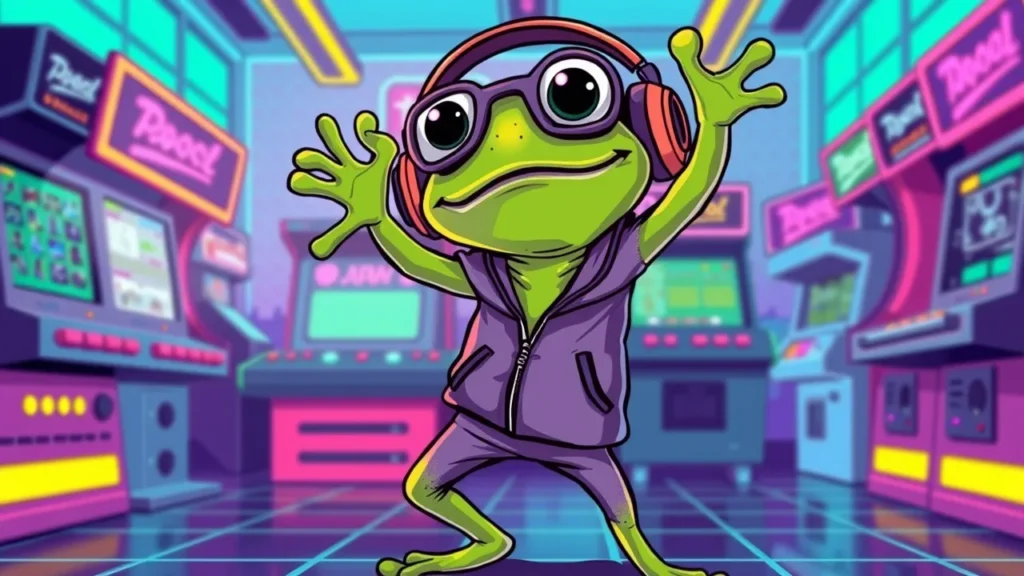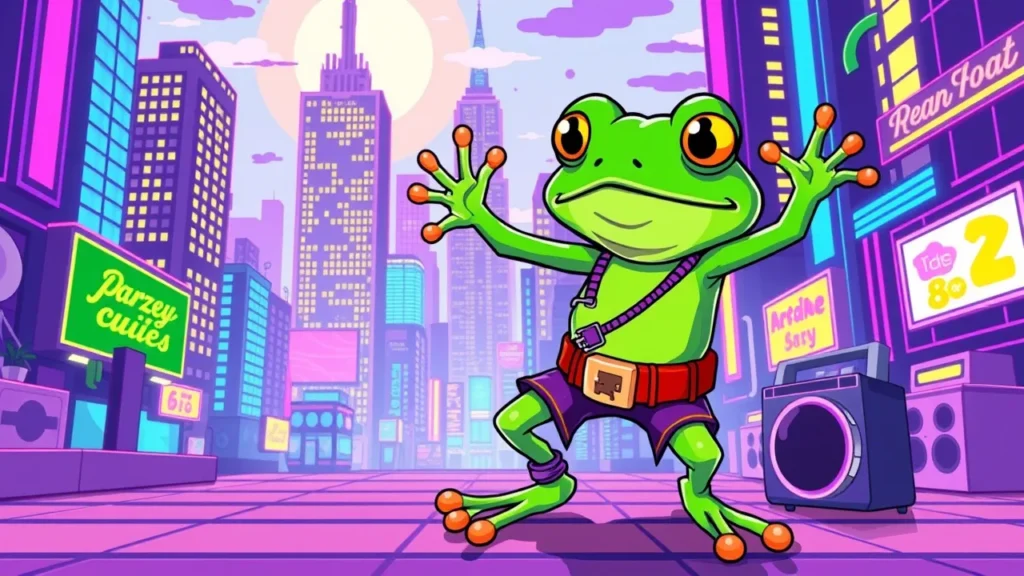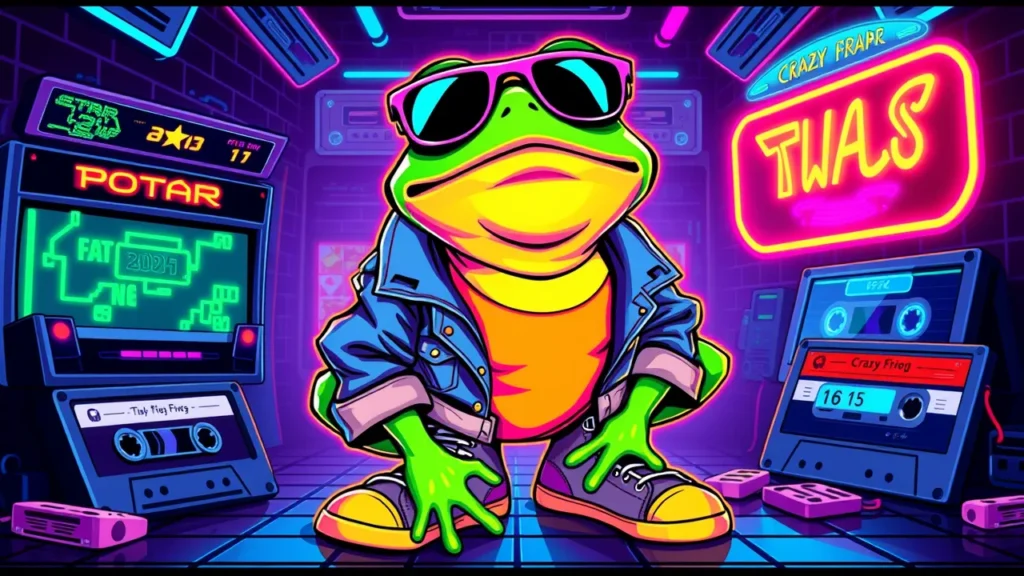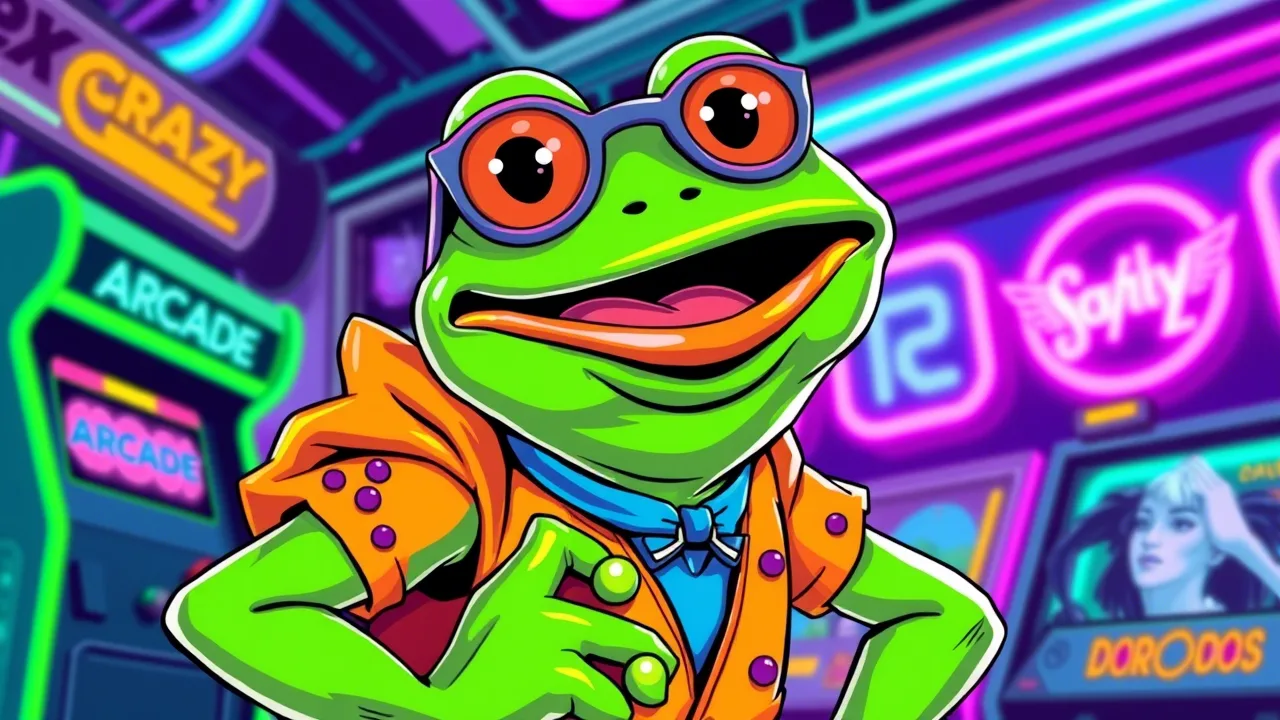The 1980s were an era filled with vibrant trends, groundbreaking music, and unforgettable pop culture phenomena. From neon fashion to iconic synthwave tunes, this decade left an indelible mark on generations. Among the many quirky symbols that emerged during this time, one stood out as particularly peculiar yet oddly captivating: Crazy Frog in the 80’s.
Despite its origins being somewhat misunderstood, Crazy Frog became a household name, sparking debates, laughter, and even a cult following. In this article, we will explore how this animated amphibian captured the hearts of millions, its surprising journey through time, and why it continues to evoke nostalgia among fans worldwide.
The Birth of Crazy Frog in the 80’s
To truly understand the phenomenon of Crazy Frog in the 80’s, we must first delve into its origins. Contrary to popular belief, Crazy Frog wasn’t originally conceived as a character tied to the 1980s at all. Its roots trace back to Sweden in 2003 when Daniel Malmedahl, a comedian, mimicked the sound of a motorcycle engine revving using his voice. This humorous impersonation gained traction online, leading to the creation of the now-famous “Axel F” ringtone. The catchy tune was based on Harold Faltermeyer’s instrumental hit from the movie Beverly Hills Cop , which itself was a massive success in the 1980s.
Capitalizing on the growing popularity of mobile ringtones, a team of animators decided to bring the concept to life by creating an accompanying character: a green frog wearing goggles and riding an invisible scooter. Thus, Crazy Frog was born. Although it didn’t emerge until decades later, its connection to the 1980s lies in its musical foundation and aesthetic appeal. The retro vibe of “Axel F,” combined with the playful energy of the animated frog, made it feel like a relic from the earlier era—hence, the association with Crazy Frog in the 80’s.
Musical Impact and Chart Success
One cannot discuss Crazy Frog without acknowledging its astronomical rise in the music charts. When “Axel F” was released as a single under the moniker Crazy Frog, it quickly climbed to the top of the charts in numerous countries. In fact, it became one of the best-selling singles of the early 2000s. However, its influence extended far beyond mere commercial success; it reintroduced audiences to the magic of 1980s-style electronic music.
| Year | Country | Chart Position |
|---|---|---|
| 2004 | United Kingdom | #1 |
| 2005 | Australia | #1 |
| 2005 | Germany | #1 |
| 2005 | United States | #50 |
As shown in the table above, Crazy Frog achieved remarkable chart positions globally, proving that its appeal transcended borders. Interestingly, while younger listeners embraced the novelty of the track, older audiences found themselves reminiscing about the golden age of synthesizers and dance beats—the defining features of 1980s music. This duality helped solidify Crazy Frog’s place in both contemporary and retro contexts, making it a bridge between two distinct musical eras.

Cultural Significance and Media Presence
Crazy Frog in the 80’s also played a significant role in shaping pop culture during its peak years. It appeared in various forms of media, including television commercials, video games, and merchandise. Its cheerful demeanor and infectious theme song made it a favorite among children, while adults couldn’t help but chuckle at its absurdity. For instance, several brands leveraged Crazy Frog’s popularity to promote their products, knowing that its quirky charm would resonate with viewers.
Moreover, Crazy Frog’s presence in video games further cemented its status as a cultural icon. Titles such as Crazy Frog Racer allowed players to experience the thrill of racing alongside the beloved amphibian. These games not only entertained but also introduced a new generation to the simple joys of arcade-style gameplay reminiscent of the 1980s. By merging modern technology with classic gaming elements, Crazy Frog managed to create a unique blend of old and new, appealing to fans across different age groups.
Controversies and Criticism
Despite its widespread popularity, Crazy Frog in the 80’s was not without its share of controversies. Some critics dismissed it as nothing more than a gimmick, arguing that its reliance on novelty overshadowed any artistic merit. Others expressed frustration over its repetitive nature, claiming that the constant exposure became tiresome. Nevertheless, these criticisms did little to dampen its appeal. If anything, they fueled discussions and debates, keeping Crazy Frog firmly in the public eye.
Interestingly, one of the most notable controversies surrounding Crazy Frog involved copyright issues. As mentioned earlier, the original “Axel F” composition belonged to Harold Faltermeyer, who initially struggled to receive proper recognition for his work. Eventually, legal agreements were reached, ensuring that Faltermeyer received due credit and compensation. This episode highlighted the complexities of intellectual property in the digital age and served as a reminder of the importance of respecting artistic contributions.

Nostalgia Factor and Enduring Legacy
Fast forward to today, and Crazy Frog in the 80’s continues to hold a special place in the hearts of those who experienced its heyday. For many, it represents a simpler time when cell phones were just beginning to revolutionize communication and internet memes were still in their infancy. Its enduring legacy can be attributed to several factors, including its timeless humor, universal appeal, and ability to evoke feelings of nostalgia.
Listed below are some reasons why Crazy Frog remains relevant even after all these years:
- Timeless Humor : Whether it’s the exaggerated sound effects or the silly animations, Crazy Frog never fails to elicit smiles and laughter.
- Universal Appeal : Regardless of age or background, people find joy in the absurdity of a frog riding an invisible scooter.
- Nostalgic Value : For those who grew up in the 2000s, Crazy Frog serves as a reminder of a bygone era filled with dial-up internet and brick-like mobile phones.
- Musical Connection : The incorporation of “Axel F” ties Crazy Frog directly to the rich tapestry of 1980s music, creating a sense of continuity between past and present.
In addition to these qualities, Crazy Frog has occasionally resurfaced in recent years, often as part of nostalgic campaigns or anniversary celebrations. Social media platforms have also played a crucial role in keeping the spirit of Crazy Frog alive, with fans sharing memes, videos, and personal anecdotes related to the character.

Lessons Learned from Crazy Frog’s Journey
Reflecting on the story of Crazy Frog in the 80’s offers valuable insights into the ever-changing landscape of entertainment and pop culture. One key takeaway is the power of simplicity. At its core, Crazy Frog was a straightforward idea executed with creativity and enthusiasm. There were no elaborate plotlines or high-budget productions—just a fun concept brought to life through animation and sound.
Another lesson is the importance of adaptability. While Crazy Frog may not have been intentionally designed as a nod to the 1980s, its association with that era demonstrates how cultural artifacts can evolve and take on new meanings over time. By embracing its retro roots, Crazy Frog managed to carve out a niche for itself in a crowded market, proving that innovation doesn’t always require reinvention.
Finally, Crazy Frog teaches us about the value of community. Its success was largely driven by word-of-mouth and grassroots support, highlighting the potential impact of fan engagement. Whether through sharing ringtones, discussing theories, or participating in online forums, enthusiasts played a pivotal role in spreading the Crazy Frog phenomenon far and wide.
Conclusion
Crazy Frog in the 80’s stands as a testament to the unpredictable nature of pop culture. What began as a lighthearted joke transformed into a global sensation, leaving an indelible mark on music, media, and society as a whole. Its ability to transcend generational boundaries and spark joy in countless individuals is a testament to its enduring appeal. As we look back on the legacy of Crazy Frog, we are reminded of the power of creativity, the importance of nostalgia, and the lasting impact of seemingly small ideas. So, whether you remember downloading the “Axel F” ringtone or simply enjoy revisiting its antics online, there’s no denying that Crazy Frog holds a unique spot in our collective memory—a true icon of its time.
